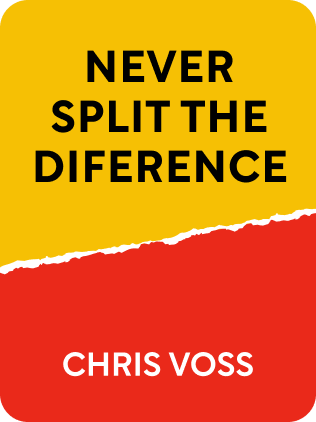

This article is an excerpt from the Shortform book guide to "Never Split the Difference" by Chris Voss and Tahl Raz. Shortform has the world's best summaries and analyses of books you should be reading.
Like this article? Sign up for a free trial here .
Looking for Never Split the Difference discussion questions? What are some themes and ideas to discuss?
Never Split the Difference provides the reader with practical negotiation strategies that transcend the traditional, old school approach to negotiation. The following discussion questions from Never Split the Difference will reinforce your understanding of the book’s key concepts and ideas.
Keep reading for Never Split the Difference discussion questions and exercises.
Never Split the Difference Discussion Questions
Never Split the Difference argues that emotion, not logic, determines the success or failure of negotiations. Being emotionally intelligent and empathetic is how you draw the crucial information out of your counterpart that gives you a decisive advantage. You get what you want by gaining a deeper understanding of what they want.
Practice these Never Split the Difference discussion questions to reinforce your understanding of the negotiation tactics discussed in the book .
Question 1: Have you ever wanted to get information from someone, but didn’t know how to ask without seeming too forward? What happened? What calibrated questions could you have asked to get this information in a subtle way?
Question 2: What is your negotiating style: accommodating, assertive, or analytical? What makes you think that you are this style? Explain your answer and identify the strengths and weaknesses of your style.
Question 3: Have you ever completely changed your thinking about a project or a negotiation because new information came to light that you hadn’t considered? Detail what happened. To avoid being surprised next time, what techniques would you use to find these “black swans” or hidden pieces of information?
Question 4: Think of an upcoming negotiation of some kind you need to do. How could you make use of loss aversion to make the other person worried about losing what you have to offer?
Question 5: Think of a time when someone was unhappy or disappointed with you. What was the problem? Imagine you get a chance to replay that interaction. Now practice an accusation audit by listing all the things they were unhappy with at the beginning of the conversation.
This might sound like, “I know I didn’t hand in that sales report on time. You probably think I’m lazy, uncommitted, inattentive to detail, and that I don’t care about wasting your time or everybody else’s.”

———End of Preview———
Like what you just read? Read the rest of the world's best book summary and analysis of Chris Voss and Tahl Raz's "Never Split the Difference" at Shortform .
Here's what you'll find in our full Never Split the Difference summary :
- Lessons learned from years as an FBI hostage negotiator
- Why negotiation is about emotional appeals, not rational ones
- The 5 methods for tactical empathy, which gets you what you want by focusing on the other person's feelings






